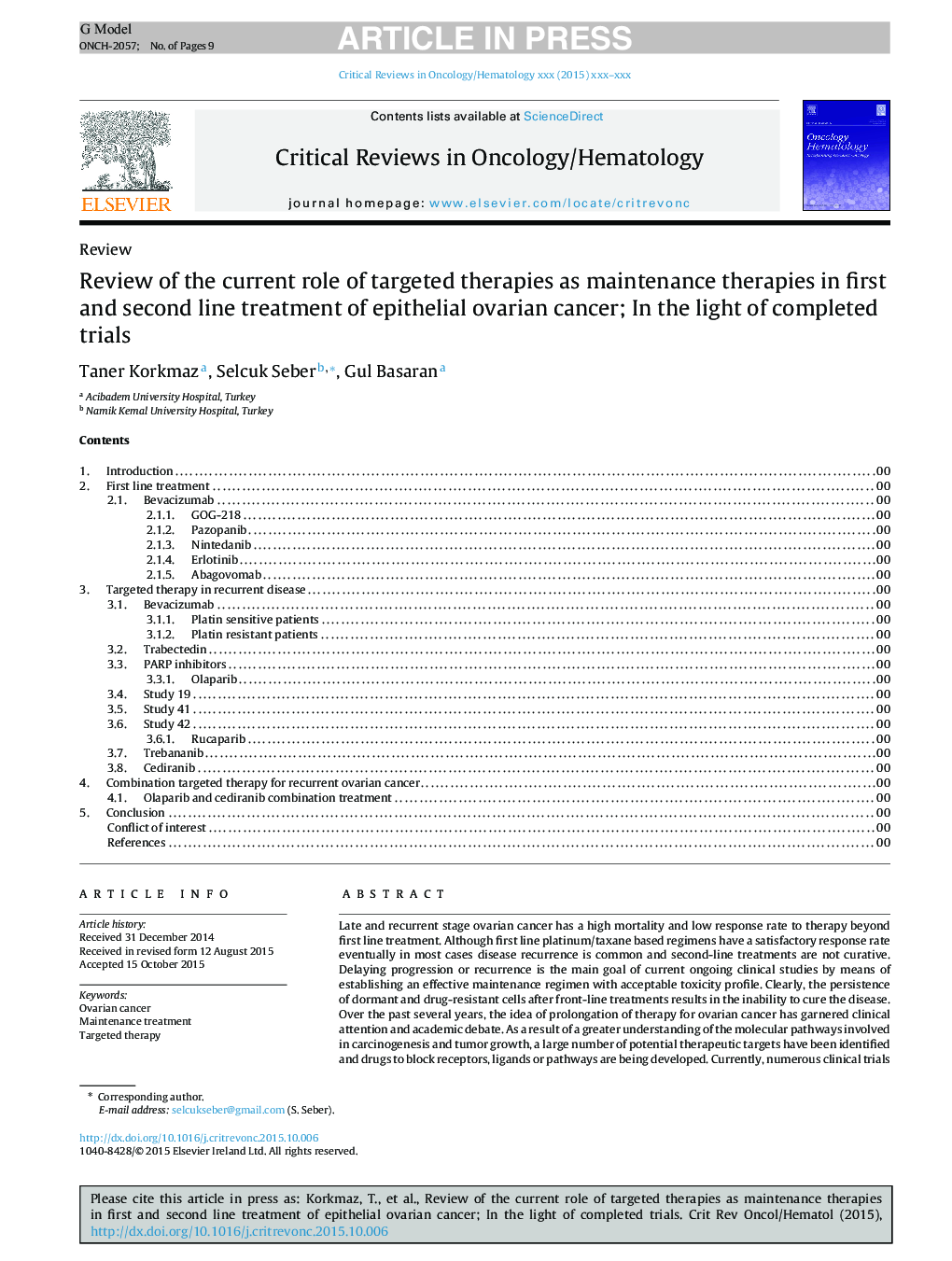| Article ID | Journal | Published Year | Pages | File Type |
|---|---|---|---|---|
| 6113480 | Critical Reviews in Oncology/Hematology | 2016 | 9 Pages |
Abstract
Late and recurrent stage ovarian cancer has a high mortality and low response rate to therapy beyond first line treatment. Although first line platinum/taxane based regimens have a satisfactory response rate eventually in most cases disease recurrence is common and second-line treatments are not curative. Delaying progression or recurrence is the main goal of current ongoing clinical studies by means of establishing an effective maintenance regimen with acceptable toxicity profile. Clearly, the persistence of dormant and drug-resistant cells after front-line treatments results in the inability to cure the disease. Over the past several years, the idea of prolongation of therapy for ovarian cancer has garnered clinical attention and academic debate. As a result of a greater understanding of the molecular pathways involved in carcinogenesis and tumor growth, a large number of potential therapeutic targets have been identified and drugs to block receptors, ligands or pathways are being developed. Currently, numerous clinical trials with targeted agents have just been completed or are ongoing involving patients achieving a complete or durable response after first-line and beyond the first line chemotherapy in order to evaluate the efficacy of different therapeutic approaches in terms of progression-free survival and overall survival.
Related Topics
Health Sciences
Medicine and Dentistry
Hematology
Authors
Taner Korkmaz, Selcuk Seber, Gul Basaran,
